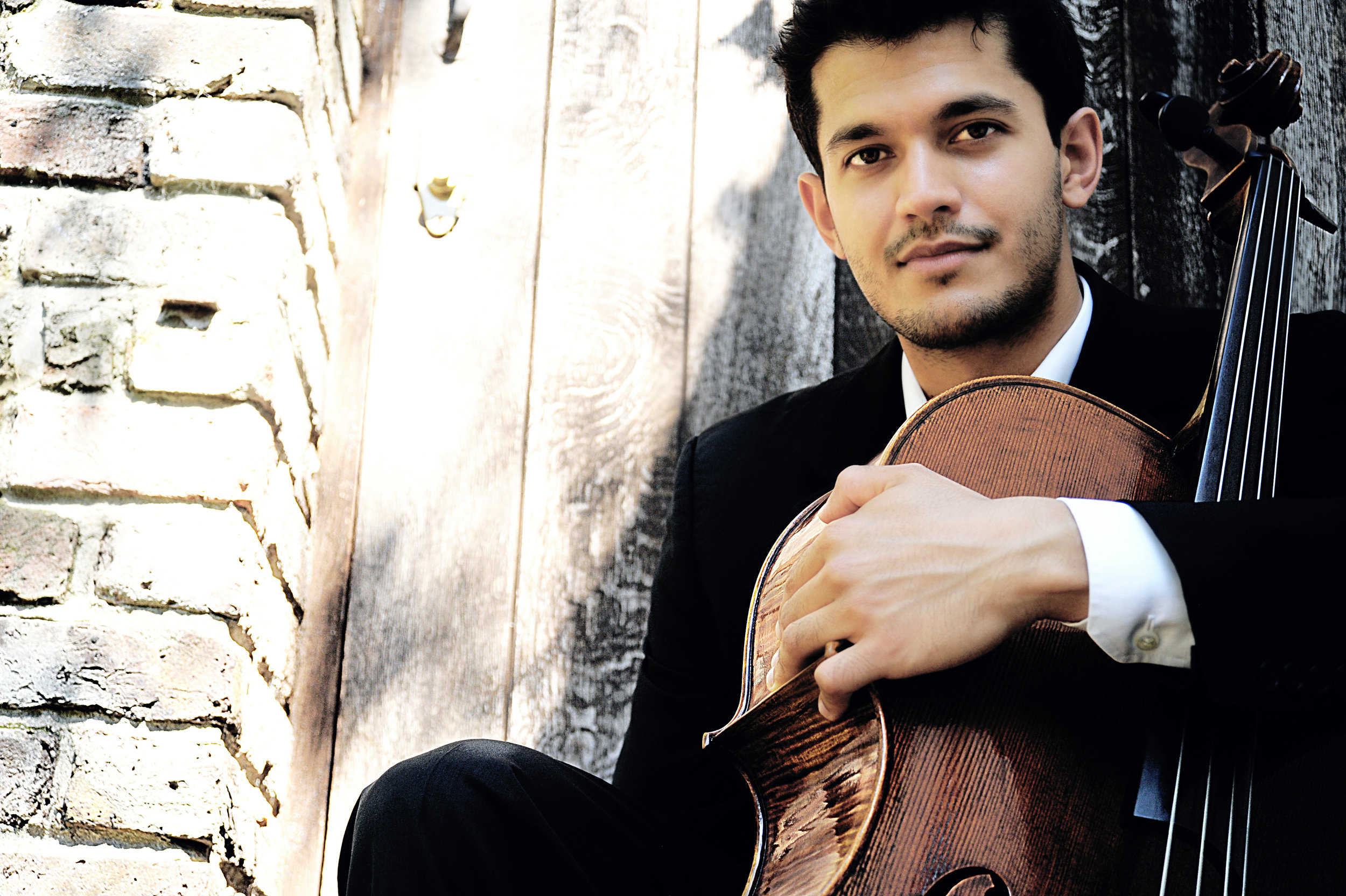Player Spotlight: Ashok Klouda
Welcome back to the latest instalment of our 'Player of the Month' feature!
Each month we feature one of our fantastic Chineke! or Chineke! Junior artists, and discuss with them their experiences, what Chineke! means to them, and any advice they might give to aspiring musicians.
This month we speak to the wonderful Chineke! Orchestra cellist Ashok Klouda!
Cellist Ashok Klouda has performed all over the world and currently leads a busy and varied career as performer and teacher.
Ashok made his solo Wigmore Hall debut in 2010 as a result of winning the Worshipful Company of Musicians/Concordia Foundation Young Artists Fund award. He has won many other awards and prizes, including 1st prize in the 2006 J. & A. Beare Solo Bach Competition, the 2007 Royal College of Music Cello Competition and the 2009 Tunnell Trust concert scheme.
The cellist in the Artea Quartet, Ashok is also a member cello octet 'Cellophony' and the London International Players. From 2009 to 2011 Ashok was cellist in the Barbirolli Quartet, during which time he toured Singapore and New Zealand, appeared throughout Europe as part of the ECHO 'Rising Stars' scheme and performed on the 1692 'Segelman' Stradivarius cello kindly loaned to him by the Royal Academy of Music.
Since 2010, Ashok has been on the Advisory Board for The London Cello Society. Teaching is an important part of Ashok’s life - he has taught cello at the Yehudi Menuhin School and given classes at the Royal Academy of Music and Guildhall School of Music & Drama. Ashok now heads up the Ex-Animo Mentorship Scheme – a new initiative to help and mentor today’s most talented young ensembles and prepare them for the profession.
Ashok has performed many times on BBC Radio 3 and he has recorded for the Nimbus Alliance label with the Barbirolli Quartet, for Music Chamber and Edition Classics as a member of Cellophony and for Champs Hill Records as a member of the Artea Quartet.
Ashok is a Founder and joint Artistic Director of the Highgate International Chamber Music Festival in London, in which he performs annually with many of today’s most eminent chamber musicians and soloists.
In 2016, Ashok was made an Associate of the Royal Academy of Music.
Q&A with Ashok:
How did you become a musician/become involved in music?
My parents both love music and offered me the opportunity to learn an instrument when I was 8 years old. I actually initially wanted to learn the double bass, but we had a very small car and my parents thought it wouldn't fit...so we settled on the cello (and the piano)! I was hugely influenced and inspired by listening to recordings of Christophe Coin and Paul Tortelier during car journeys to and from school, which helped me come round to the idea that perhaps the cello was ALMOST as good as the bass...
What do you wish someone had told you when you were first considering becoming a musician?
That if you work hard on the quality of your technique and use of your body in the early stages, you will probably save yourself years of work later on, therefore leaving you much more time to have fun both on your instrument and away from it!
How did you first hear about the Chineke! Foundation? What did you initially think of the idea and has that changed since you have been involved?
I was fortunate enough to be contacted by Chi-chi with an invitation to be a part of Chineke's exciting first project at the Royal Festival Hall back in 2015. I felt honoured to be asked, though initially I did not fully understand why an orchestra of its nature was needed, as I had never encountered/was not aware of any active racism or discrimination in the UK's classical music scene. However, I started to take more notice of the demographic around me and realised that it was so clearly not a balanced representation of the society around us. It became clear to me that Chineke! was indeed necessary in order to bring about change and create a new balance and I am proud to be a part of it.
Have you found that there are any specific challenges associated with being a BME musician? If so, what are they?
Thankfully I have not personally encountered any yet. I do think that overall, the UK is a very open environment and that the main challenge for the country is to ensure classical music is both accessible and seen as a viable art form to pursue for people of all ethnicities and from all social backgrounds.
What is the musical accomplishment you are most proud of?
I think probably the creation and development of the Highgate International Chamber Music Festival, which I co-founded back in 2012 with my wife Natalie Klouda and our close friend Irina Botan.
How has playing with Chineke! helped you/your personal development as a musician?
For me, it has been really great to meet so many wonderful people and to form many new musical connections as a result of playing with Chineke! There have been numerous memorable chamber music and orchestral performances and I look forward to many more in the future!
What advice would you give to an aspiring young BME musician?
WORK HARD!!!


